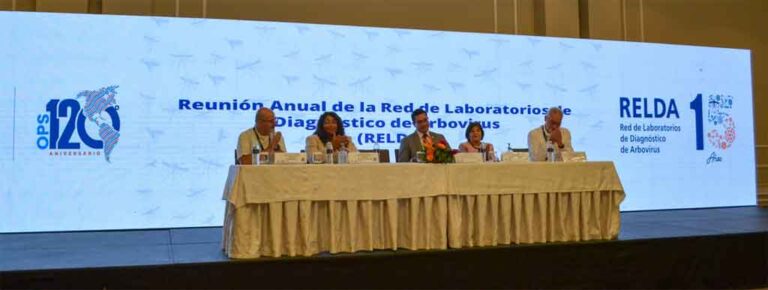“At least nine arboviruses with public health impact – such as dengue, zika, chikungunya and yellow fever – are circulating in Latin America and the Caribbean, so strengthening and expanding laboratory detection and surveillance capacities are key to ensuring a timely response to outbreaks and epidemics,” Sylvain Aldighieri, Deputy Director of PAHO’s Department of Health Emergencies, said.
Arboviruses are transmitted by the bite of arthropods (mosquitoes and ticks, among others). From the beginning of 2023 until the end of July, more than 3 million new dengue infections and more than 324,000 cases of chikungunya were reported in the Americas.
With 27,000 cases across the region in the same period, Zika has a lower incidence rate, while sporadic cases of yellow fever represent a permanent risk of re-emergence of this potentially lethal disease.
“The epidemiological picture of arboviruses in the region is highly complex due to the epidemic potential of these diseases,” José Luis San Martín, PAHO regional advisor on arboviral diseases, warned.
“We must carry out an integrated prevention and control strategy that uses new innovations to closely monitor these viruses in laboratories,” he added.
The annual meeting of the Arbovirus Diagnosis Laboratory Network of the Americas (RELDA), of which PAHO is the technical secretariat, takes place this week until Thursday. Members, which are made up of 35 national laboratories from across the region, technical advisors and WHO collaborating centers, will review ways to expand genomic and entomovirological surveillance to major arboviruses.
During the Covid-19 pandemic, genomic surveillance of SARS-CoV-2 proved key to understanding the virus, its variants, and advising public policy to prevent and control of the disease.
Many countries are taking advantage of these capacities and have started sequencing dengue, yellow fever, chikungunya and other viruses, some for the first time. With RELDA’s support, laboratories can expand this surveillance to find out the genomes of arboviruses circulating in their territory, their dispersion patterns and analyze whether mutations are associated with greater transmissibility or severity.
pll/ro/crc









